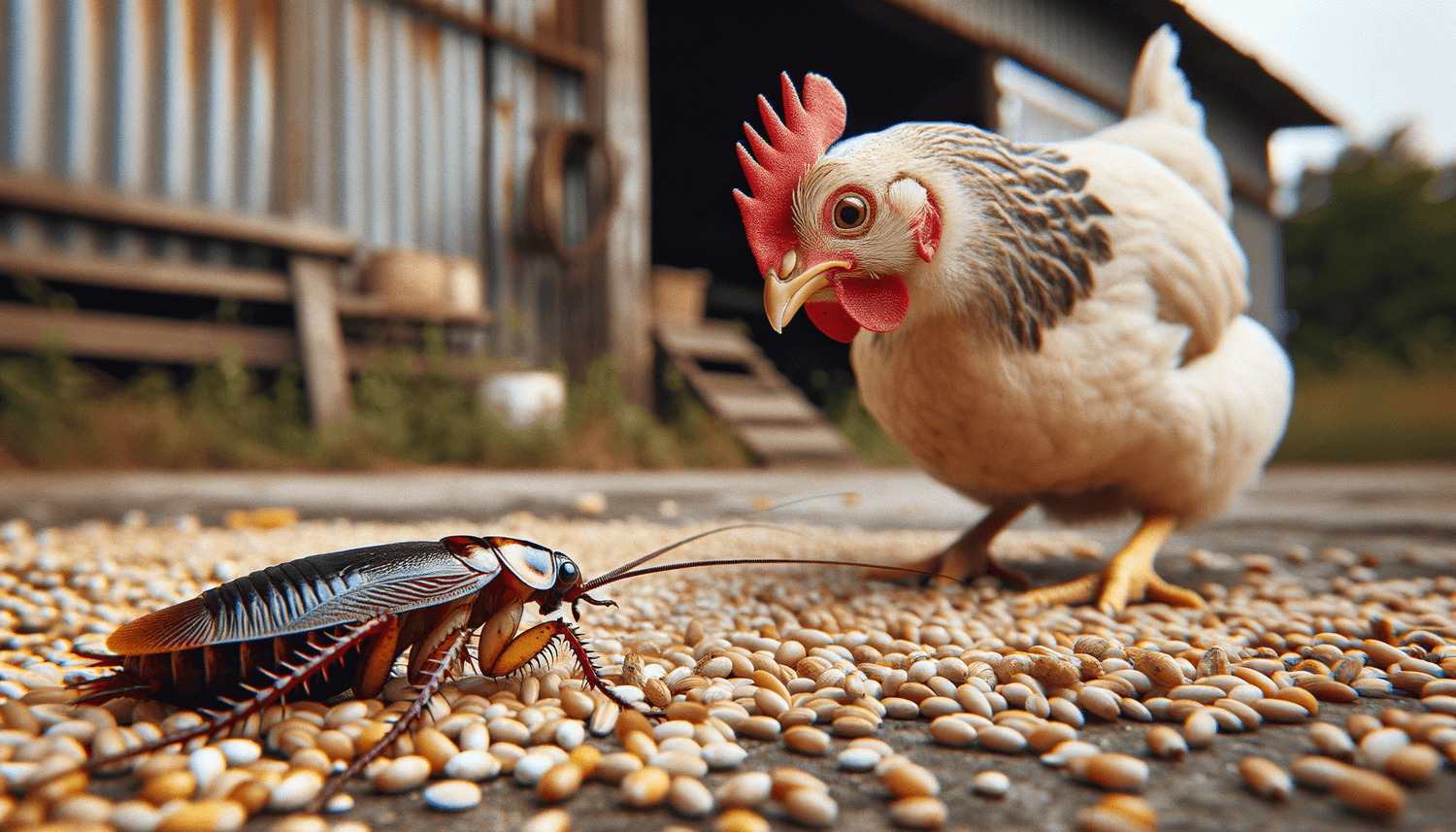If you’ve been pondering the age-old query bugging chicken enthusiasts everywhere – “Can chickens eat roaches?” – then you’ve come to the right place! In this fun and informative blog post, we’ll dissect this crunchy question and serve up a heaping helping of knowledge, covering everything from the fine-dining preferences of our feathery friends to their nutritional requirements, the benefits and potential risks of consuming these creepy crawlies, and even some tips on how to prepare this unique delicacy for your backyard brood. Let’s get crackin’ and start exploring the fascinating world of chickens and roaches!
Can chickens eat roaches?
Yes, chickens can indeed eat roaches and it is generally safe for them to do so. Chickens are natural omnivores, which means they enjoy a varied diet including insects. Roaches offer a good source of protein and can be a beneficial addition to their diet, as long as you ensure that the roaches haven’t been exposed to any chemicals or pesticides that may harm your chickens.
A balanced diet for chickens
Just like humans, chickens need a balanced diet to maintain their overall health and well-being. A chicken’s diet should primarily consist of high-quality chicken feed, which ensures they receive the essential nutrients, vitamins, and minerals required for optimal growth, egg production, and overall health. This chicken feed should make up approximately 80-90% of their daily diet.
The remaining 10-20% of a chicken’s diet can consist of treats like fruits and vegetables, including nutritious garden veggies, leafy greens, and tasty berries. These treats not only provide additional vitamins and minerals but also create diversity in their diet, making mealtime more enjoyable for your feathery friends. Remember, moderation is key, and it’s crucial to provide these treats alongside a well-formulated chicken feed to ensure your backyard flock receives a balanced and wholesome diet.
Nutritional value of roaches for chickens.
Feeding roaches to chickens offers a range of nutritional benefits for your feathery friends. One of the primary perks of incorporating roaches into a chicken’s diet is their high protein content. Chickens require a good amount of protein to maintain and repair tissues, along with creating essential components such as hormones and enzymes. Protein is also vital for egg production in laying hens, ensuring a steady stream of delicious, healthy eggs.
Apart from protein, roaches also contain essential vitamins and minerals that contribute to your chicken’s overall health. Some of these nutrients include calcium, phosphorus, potassium, and traces of vitamin B, which play critical roles in the development of strong bones, eggshell formation, nerve function, and metabolic processes. Moreover, roaches boast a high moisture content, which assists in keeping your chickens hydrated, particularly during hotter months.
In conclusion, while roaches may not be the most appetizing treat for humans, they serve as an excellent source of nutrition for chickens. Adding roaches to a chicken’s diet can provide them with essential nutrients, promote better egg production, and keep your backyard flock happy and healthy. Just ensure you’re providing roaches that haven’t been exposed to harmful chemicals or pesticides to keep your chickens safe and flourishing.
Nutrition table of roaches for chickens.
| Information | Description |
|---|---|
| Nutritional Value | High in protein, calcium, phosphorus, potassium, and traces of vitamin B. |
| Suggested Serving Size | Small amounts as treats, alongside a balanced diet consisting of high-quality chicken feed. |
| Safe Feeding Practices | Ensure the roaches have not been exposed to harmful chemicals or pesticides before feeding to chickens. |
| Preparation | Roaches can be fed live or dried, depending on your chicken’s preference. |
| Potential Risks | Roaches exposed to chemicals or pesticides can pose health risks to chickens. |
| Hydration | Roaches have a high moisture content, which helps in keeping chickens hydrated. |
| Digestion | Roaches are easily digestible for chickens due to their natural omnivorous diet. |
| Seasonal Availability | Roaches are most commonly available during warmer months, although they can be purchased or found year-round. |
| Other Benefits | Feeding roaches can promote natural foraging behavior and contribute to a diverse diet for chickens. |
Encouraging natural foraging
One of the additional benefits of feeding roaches to your chickens is that it encourages their natural foraging behavior. Chickens instinctively love to search for insects in their environment, and providing them with roaches can help stimulate this activity. Foraging not only keeps your flock entertained but also promotes exercise, reduces the chances of obesity and stress, and fosters a generally healthier and happier environment for your backyard chickens.
Where to source roaches
When it comes to finding roaches for your chickens, you have a few options. You can either collect them naturally from your yard if they are already present and not exposed to chemicals, or you can purchase them from reputable suppliers. Roaches are often available at pet stores, as they are commonly used as food for reptiles. You can buy them live or dried, depending on your preference and convenience. Just make sure to verify that the roaches have not been treated with any harmful substances before feeding them to your chickens.
Introducing roaches to your chickens
If your chickens haven’t encountered roaches before, it’s essential to introduce them gradually. Start by offering a few live or dried roaches and monitoring your chickens’ response. They may take some time to acquire a taste for these creepy crawlies or just need to figure out that they are indeed a delicious delicacy. Once they’ve warmed up to the idea of munching on roaches, you can continue providing them as occasional treats along with their regular diet.
In conclusion, roaches can be a nutritious and engaging addition to your chickens’ diet, offering excellent health benefits and promoting natural foraging behavior. By following safe feeding practices and ensuring balance in their overall diet, you’ll have a thriving and content flock of backyard chickens.

















